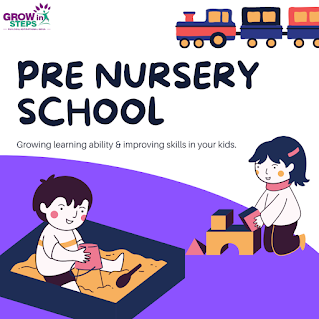Enrolling your child in a pre-nursery school can bring numerous benefits to their overall development and prepare them for future educational experiences.
Here are some of the key advantages of a Pre-nursery School
Social and Emotional Development
Pre-nursery schools provide a structured environment where children can interact with their peers and develop social skills. They learn to share, take turns, communicate, and cooperate with others. These early interactions help children develop emotional intelligence, empathy, and build positive relationships.
Cognitive Development
Pre-nursery schools offer various age-appropriate activities and educational materials that stimulate children's cognitive development. Through play-based learning, children engage in activities that enhance their problem-solving skills, critical thinking, creativity, and language development. They are exposed to early literacy and numeracy concepts, laying a solid foundation for future academic success.
Independence and Self-Confidence
Pre-nursery schools encourage children to become more independent by engaging in age-appropriate tasks. They learn to follow routines, manage their belongings, and make choices. Through positive reinforcement and encouragement, children develop a sense of self-confidence and a belief in their abilities, which is vital for their future academic and personal growth.
Physical Development
Pre-nursery schools often incorporate physical activities into their curriculum to promote gross and fine motor skills development. Children engage in games, outdoor play, and various exercises that enhance their coordination, balance, and overall physical health.
Language and Communication Skills
Pre-nursery schools provide an environment rich in language and communication opportunities. Children are exposed to a variety of vocabulary, storytelling, and conversation activities, which help them develop their language skills. They learn to express themselves, listen actively, and develop early literacy skills, setting a strong foundation for future academic success.
Preparation for Formal Education
Pre-nursery schools serve as a stepping stone for formal education. They introduce children to a structured learning environment, routines, and classroom etiquette. By experiencing a structured educational setting early on, children develop the skills necessary to adapt to primary school and academic expectations.
Exposure to Diversity and Different Cultures
Pre-nursery schools often have a diverse student population, exposing children to different cultures, languages, and backgrounds. This exposure fosters tolerance, acceptance, and appreciation for diversity, promoting a well-rounded worldview.
Parental Involvement and Support
Many pre-nursery schools encourage parental involvement
through activities like parent-teacher meetings, workshops, and events. This
involvement allows parents to understand their child's progress, receive
guidance on parenting strategies, and build a supportive network with other
parents.
Overall, enrolling your child in a pre-nursery school provides
a structured and nurturing environment where they can develop social,
emotional, cognitive, and physical skills. It prepares them for future
educational experiences and lays the foundation for lifelong learning.



